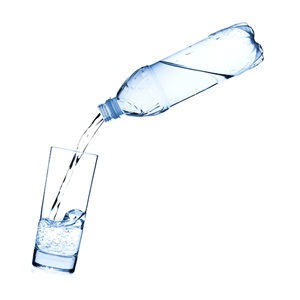Avoiding Dehydration with COPD

Water is very important for your body to be able to function properly. For example, water helps regulate your temperature, gets rid of wastes and lubricates your joints. It is very important for people with COPD because it helps to thin mucus making it easier to cough up.
Dehydration means that the body doesn’t have enough fluid to work at its best. Dehydration can cause constipation, electrolyte imbalances, kidney problems and loss of balance. Severe dehydration can lead to a hospital visit or even death.
Some people with COPD who also have heart problems might need to limit their fluids, so be sure to follow your doctor’s guidelines. Sometimes a person who has COPD or CHF may also have renal disease in which they may have different fluid intake guidelines. If you are not sure whether you have fluid restrictions, ask your health care provider.
If you do not have any fluid restrictions, you should drink at least six 8-ounce glasses of non-caffeinated beverages each day.
There are additional factors that can lead to dehydration. Hot or humid conditions can cause water loss through sweating, so try to limit time in these environments and drink more water if you find yourself in the heat.
Anyone who is already sick with a fever, vomiting or diarrhea is already losing fluids and should take in fluids to compensate. Someone who has had vomiting and diarrhea can also lose electrolytes and may benefit from drinking electrolytes such as those found in sports drinks and Pedialyte. Sports drinks have sodium and sugar, so these shouldn’t be your go-to drink unless instructed by your health care provider.
To prevent dehydration, you should drink water throughout the day. Water is best, but other drinks can also be helpful like milk, flavored sparkling water, and low-sugar fruit juices. Even frequent small sips are helpful if you cannot drink a full glass at a time. Coffee and tea actually have a diuretic effect, so drink these sparingly.
Some foods can be hydrating, including watermelon, cucumber, celery, strawberries and low sodium broths or soups.
It is important to be aware of the common signs of dehydration, which include a dry mouth, fatigue, sunken eyes, a decrease in the amount of urine, dark colored urine, muscle cramping, and feeling dizzy or lightheaded. The treatment for dehydration is simply replacing the lost fluids by drinking water or other fluids, like juices or broths.
If the dehydration is serious, it requires immediate attention. These symptoms are a rapid heart rate, trouble moving or walking, confusion or disorientation, fainting and/or vomiting or diarrhea that lasts longer than 24 hours. Anyone suffering from these symptoms should go to the emergency room right away where they will most likely receive intravenous fluids and electrolytes.
If dehydration isn’t treated, serious complications or even death can occur.
As a reminder, if you have an underlying health condition in addition to COPD, such as heart failure, kidney disease or diabetes, it is very important to talk to your health care provider about what amount of fluids you need to drink for your body to be hydrated and healthy.
